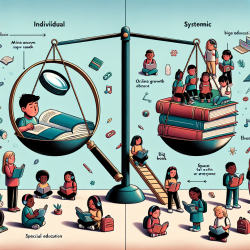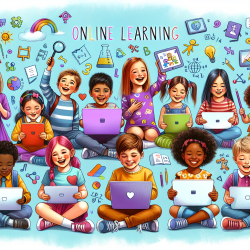The recent research article titled "Overemphasizing individual differences and overlooking systemic factors reinforces educational inequality" sheds light on a critical issue in the field of education. The paper argues that while individual-focused interventions are essential, they often fail to address the broader systemic factors that contribute to educational inequality. As practitioners, it is crucial to understand how these findings can be applied to improve educational outcomes for all students.
The Importance of Contextual Understanding
The research highlights that many educational interventions are developed within Euro-American contexts and are often applied globally without considering local systemic barriers. This approach can lead to a misalignment between the intervention and the unique needs of the community it is intended to serve. Practitioners should prioritize understanding the local context and collaborate with communities to develop interventions that are culturally relevant and address systemic issues.
Integrating Systemic Changes with Individual Interventions
While individual interventions such as social-emotional learning (SEL) programs are valuable, they should not be seen as standalone solutions. The research suggests that these programs need to be integrated with systemic changes that address structural barriers like poverty and marginalization. For instance, improving school resources, fostering community engagement, and implementing policies that promote equity can enhance the effectiveness of SEL programs.
Encouraging Further Research and Collaboration
The article encourages educators and researchers to engage in further studies that explore the interplay between individual differences and systemic factors. By fostering research-practice partnerships, educators can create sustainable changes that are informed by both empirical evidence and local knowledge. This collaborative approach ensures that interventions are not only effective but also equitable.
Practical Steps for Practitioners
- Understand Local Contexts: Engage with communities to identify their unique challenges and strengths.
- Promote Equity: Advocate for policies that address systemic barriers such as funding disparities and access to resources.
- Culturally Relevant Interventions: Develop programs that resonate with the cultural values and experiences of students.
- Sustainability: Focus on long-term solutions that integrate both individual and systemic approaches.
The insights from this research are invaluable for practitioners aiming to create a more equitable educational landscape. By balancing individual-focused strategies with systemic changes, educators can better support all students in achieving their full potential.










